Fiscal Sponsorships
As a California non-profit 501(c)(3) organization, KlezCalifornia, Inc., provides fiscal sponsorship services for selected arts, culture, and education projects that involve the Jewish community or other communities among which Jews live or have lived. KlezCalifornia provides administrative services to these sponsored projects. Donations to KlezCalifornia for those projects are tax-deductible to the donors and KlezCalifornia then provides grants to sponsored projects based on funds they raise. To learn more, contact KlezCalifornia Executive Director Judy Kunofsky, at 415.789.7679 or nu@klezcalifornia.org

Shibboleth: Jews, Music & Jewish Music
Shibboleth is a new quarterly print and online publication exploring the world of Jews, music, and Jewish music. Through interviews, features, investigative pieces, profiles, commentary, reviews, humor and criticism, Shibboleth aims to engage readers intimately with this vibrant vein of Jewish creativity.
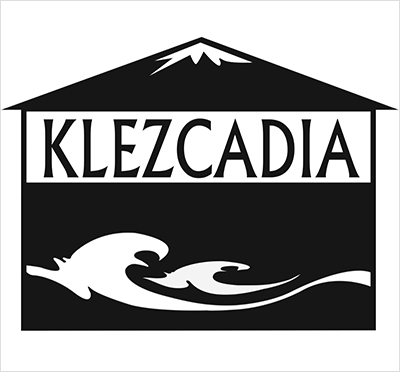
US Friends of KLEZCADIA
KLEZCADIA – A Safer Shtetl for Klezmer Music & Yiddish Culture - is a fully-hybrid festival and learning retreat that prioritizes the safe experience of immunocompromised and high-risk participants. Its 4-9 June 2024 inaugural season in the beautiful Cascadian city of Victoria, British Columbia will feature the virtuoso klezmer band Veretski Pass and other outstanding artists from both sides of the border. Registration is open and it’s free: www.klezcadia.org. KLEZCADIA is a program of Emanu-El of Victoria on Vancouver Island, Canada. US Friends of KLEZCADIA is a fiscally-sponsored project of KlezCalifornia.
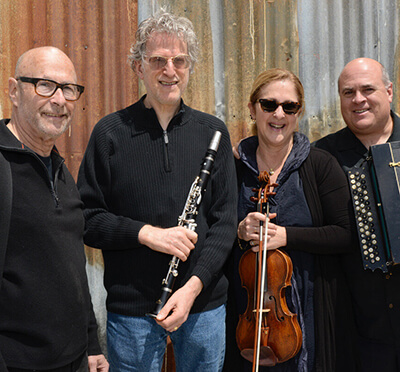
Makonovetsky’s Scion
The latest endeavor of Veretski Pass is to research, develop, and create a CD recording of a repertoire of pre-Holocaust traditional, previously lost, music that has recently become available through the Kiselgof-Makonovetsky Digital Manuscript Project (KMDMP). The KMDMP is designed to make materials collected by Zinovy Kiselgof during An-ski Expeditions and the Makonovetsky Wedding Manuscript —long-preserved in the Vernadsky National Library of Ukraine—accessible to researchers, instrumentalists, and singers around the world (http://klezmerinstitute.org/kmdmp/).
Veretski Pass (Cookie Segelstein, Stuart Brotman, and Joshua Horowitz) will collaborate with traditional Jewish clarinetist Joel Rubin to create a program of music that revitalizes the pieces and styles of music that were previously deemed lost. The source material includes approximately 850 high-resolution scans from handwritten notebooks (hefts) from which Veretski Pass will choose their repertoire. Project objectives are to:
• Conserve this repertoire by incorporating it into a group context for performance
• Document it by recording and disseminating to other communities
• Offer international workshops in order to enable its long-term sustainability.
The CD will be issued by the Borscht Beat record label.
More Info »
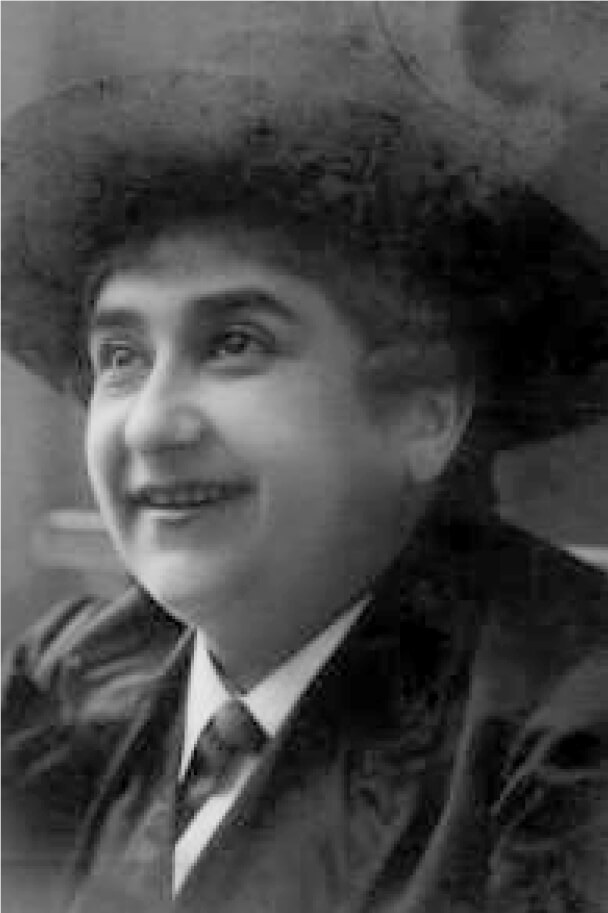
The Pepi Litman Project דער פּעפּי ליטמאַן פּראָיעקט
Pepi Litman (1874-1930) was a charismatic cross-dressing Yiddish singer who spent her life crossing borders between genders, nations, languages, and people. She left us a few 78 RPM recordings and photos, inspiring LGBTQQ folks to embrace her as a "transcestor." But Litman’s rapid-fire delivery, broad accent, and bawdy jokes mean that most of her songs are untranslated—until now. The Pepi Litman Project aims to make Pepi's songs accessible to a new generation. Jeanette Lewicki of Oakland will work with international Yiddishists, including Yiddish educator Eliezer Niborski, to translate Pepi Litman's songs, along with supporting material from the Broderzinger movement. The initial goal is Yiddish-English translation of Pepi Litman songs, to share with performers, researchers, and new audiences around the world. View project website »
פּעפי ליטמאַן (1874—1930) איז געווען אַ כאַריזמאַטישע טראַװעסטירנדיקע זינגערין פֿון ייִדישע לידער. זי האָט איר לעבן לאַנג איבערגעשניטן די גרענעצן צווישן מינים, פעלקער, לשונות, און מענטשן. פּעפּי האָט אונדז איבערגעלאָזט עטלעכע רעקאָרדירונגען און פֿאָטאָגראַפֿיעס, װעלכע באַגײַסטערן די הײַנטיקע דזשענדער־קװיר קהילה איר אַרומצונעמען ווי אַ „טראַנסעלטער-עלטערין.“ אָבער צוליב ליטמאַנס גיכשיסיק רעציטאַציע, אַיר ברייטן גאַליצישער אַקצענט, און אירע פֿעפֿערדיקע װיצן, ס׳רובֿ פֿון אירע לידער זײַנען שוין ניט איבערגעזעצט געוואָרן—ביז איצט
דער פּעפּי ליטמאַן פּראָיעקט ציל צו מאַכן פּעפּיס לידער צוטריטלעך פֿאַר אַ נייַע דור. דזשאַנעט לעוויצקי, אַין אָקלאַנד, וועט אַרבעטן מיט די אינטערנאַציאָנאַלע ייִדישיסטן, ייִדיש-שפּראַך דערציער אליעזר ניבאָרסקי בתוכם, צו טראַנסקריבירן און איבערזעצן פּעפּי ליטמאַנס לידער (צוזאַמען מיט שײַכותדיקע מאַטעריאַלן פֿון דער בראָדערזינגער באַוועגונג). דער ערשטער ציל איז ייִדיש־ענגליש איבערזעצונג פֿון פּעפּיס
.לידער, פֿאַר אַרטיסטן, פֿאַרשערס, און נייַע עולםס איבער דער וועלט
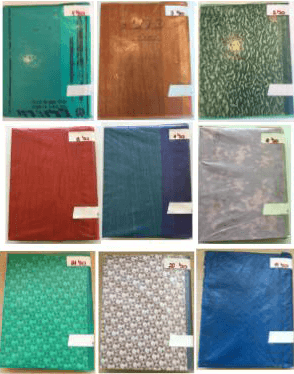
Doubly Suppressed, Doubly Forgotten:
The Meir Noy Collection of Yiddish Songs
In Jerusalem lies a treasure: Yiddish songs collected by musicologist and ethnographer Meir Noy, starting in his native town of Kolomea, Galicia before the Second World War and continuing in Israel. He wrote the songs by hand – sometimes in red ink! -- into a series of 24 journals which contain rarities of international parodies, unconventional love stories, and twists on religious and social conventions. Sharon Bernstein and the Meir Noy Yiddish Song Project will bring to light the songs in this collection through a series of recordings and community presentations and workshops with the goal of expanding awareness and conception of Yiddish song.
This project has been made possible in part by a grant from the Alliance for California Traditional Arts, in partnership with the Walter & Elise Haas Fund, the William and Flora Hewlett Foundation, Grants for the Arts, and The California Endowment.
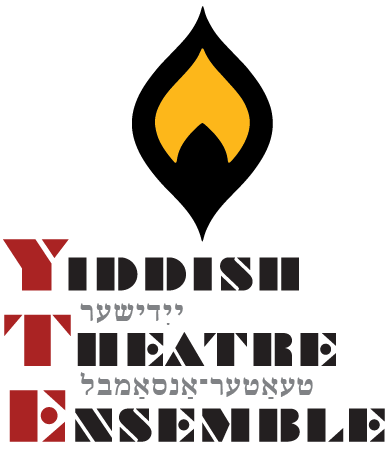
Yiddish Theatre Ensemble
Yiddish Theatre Ensemble (YTE), led by co-artistic directors Laura Sheppard, producer, and Bruce Bierman, director, produces plays and musicals from the rich, rarely performed Yiddish theatre repertory as well as new and original works by living artists.
Collaborating with KlezCalifornia, YTE produced the popular Yiddish musical Di Megileh of Itzik Manger in March 2014 and February 2015 at the JCC East Bay as part of the Jewish Music Festival, and co-produced KlezCalifornia’s Cabaret by the Bay.
YTE later developed the award-winning online video adaption of God of Vengeance by Sholem Asch in March and May, 2021. It featured an English translation by Caraid O’Brien which incorporated Yiddish expressions, a cast of 17 actors and an original score by David Rosenfeld.
San Francisco Playhouse invited YTE to co-produce the Tony Award-winning Broadway play Indecent by Paula Vogel for a Bay Area premiere September to November, 2022. YTE consulted on casting, music, dramaturgy, Yiddish dance and marketing. The show received six awards from the Bay Area Theatre Critics Circle. .
YTE recently produced Between Worlds, an original theater piece conceived and written by veteran playwright and actor, Naomi Newman. The script was based on the poetry and life of child Holocaust survivor, political activist, and lesbian poet Irena Klepfisz. The play, created by an ensemble of actors and musicians, premiered in August 2023 at the Live Oak Theatre, Berkeley, to sell-out audiences.
For more information, email us at info@yiddishtheatre-ensemble.org
For production information see our website »

The Yiddish Arts and Academics Association of North America (YAAANA)
The Yiddish Arts and Academics Association of North America (YAAANA) yaaana.org is San Diego’s only organization dedicated to promoting Yiddish language and culture. Help make San Diego a destination for Yiddish enthusiasts! It is up to us to not only preserve but also advance, Yiddishkeit in our communities. In 2019, our two-and-a-half-year-old organization continued to grow and promote Yiddish. We had 30 events and 5 different Yiddish-language class series. Our events included a Polish Shabbat celebration that brought together Jewish and Polish communities, a multilingual Passover Seder, YAAANA’s Second Anniversary Celebration with Yiddish opera and drag queen performances, Yiddish Rosh Hashanah with erotic poetry, and Yiddish Halloween. We also staged – in 5 locations all over San Diego County – the Yiddish play Kraft (Power) by Leah Hoffman, as a part of the San Diego International Fringe Festival. The classes were held in University City, Balboa Park, Pacific Beach, Poway, and Vista. Our mailing list now includes over 1000 Yiddish enthusiasts. Activities planned for 2020 are screenings of Yiddish movies, lectures, classes, and one klezmer concert.
Past Projects
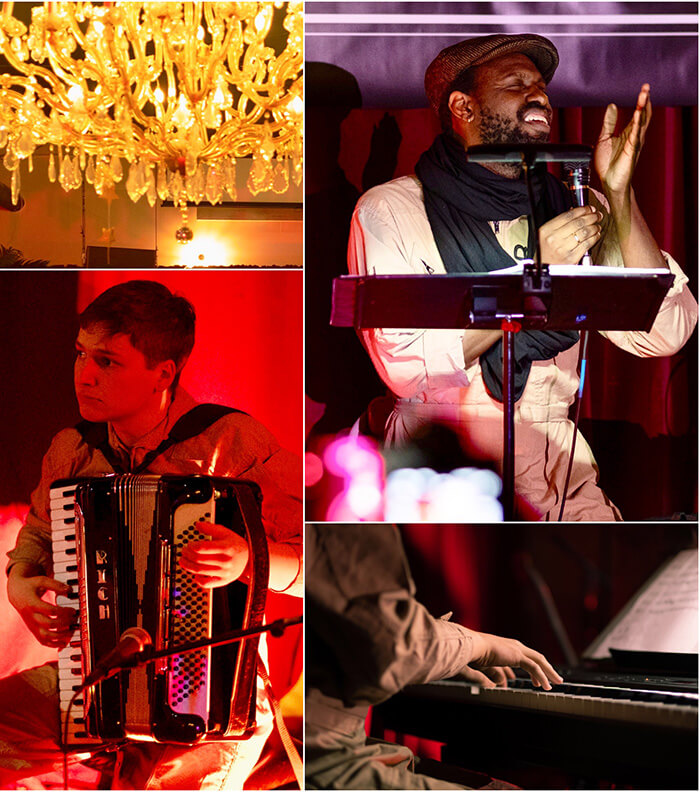
Cafe Cosmopole
Cafe Cosmopole is a two-man show featuring a script and original music written and performed for Yiddish songwriting duo Tsvey Brider (vocalist Anthony Mordechai Tzvi Russell and piano/accordionist Dmitri Gaskin). The songs in Cosmopole consist of new settings of poems by an international group of Yiddish poets from the first three decades of the 20th century. The script is in English and songs are translated for the audience via coordinated projected supertitles. Cosmopole is to be performed in an intimate, interactive, cabaret-style setting. Inspired in part by A Rich Brew: How Cafes Created Modern Jewish Culture, by Shachar Pinkser, Cosmopole is set in a pastiche of the lively interwar cafes scenes of Warsaw, Odessa and Berlin, where the lives, eccentricities, and stories of Jewish cafe habitués are explored.
Excerpts from Cosmopole have been presented by the Yiddish Book Center's annual Yidstock Festival, JCC East Bay in the SF Bay Area, Carnegie Hall’s Migrations Festival, The University of Wisconsin Milwaukee's Colors of Jewishness performance series and, most recently, by the Yiddish Summer Weimar Festival in Weimar, Germany.
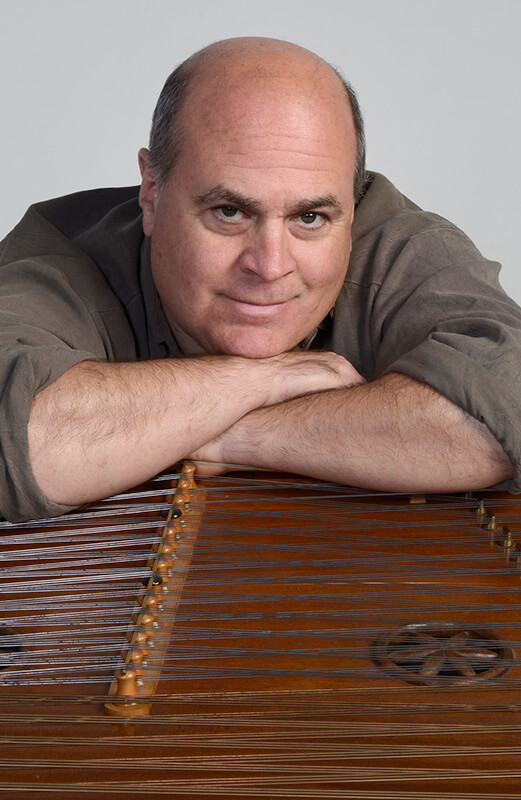
The Wood and Straw Man
Joshua Horowitz is seeking funds to compose a contemporary opera that explores the dynamics of 19th century self-definition in an experimental fashion, and to connect it to current trends. To that end, the project will include themes of antisemitism, sexuality, and the propagation of untruths, using musical theater as the vehicle of exploration.
The proposed work uses as its central axis the adventures of the 19th Century xylophonist, Josef Michael Guzikov, a Belorussian Hasidic Jewish musician who traveled through Europe performing on a primitive, self-made instrument of wood and straw, impressing the concert world and the nobility with his virtuosity. Guzikov was not only responsible for the eventual inclusion of the xylophone in the classical symphony orchestra, but also managed to validate and elevate the position of the folk musician in his epoch.
But Guzikov himself was not without controversy. He violated the laws of Orthodox Jewry in the service of his art, thus inviting the question as to whether his performances exploited the exotic aura of East European Judaism for personal gain. His fascinating encounter with the classical world, specifically with Felix and Fanny Mendelssohn whose family converted to Protestantism in order to thrive in their professions, reveals a conflict that stands at the heart of today's identity politics: the tension between self-definition and objective truth and the dialectic between the biological and the performative.
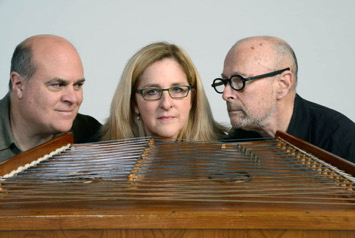
Veretski Pass, The Magid Chronicles
Klezmer trio Veretski Pass is developing and recording the pieces collected by Sofia Magid, the Jewish ethnographer who worked intensively to document Jewish music in Belarus and Ukraine during Stalin's reign in the 1920s and 30s. The project is supported by a City of Berkeley Civic Arts Grant and the Alliance for California Traditional Arts.
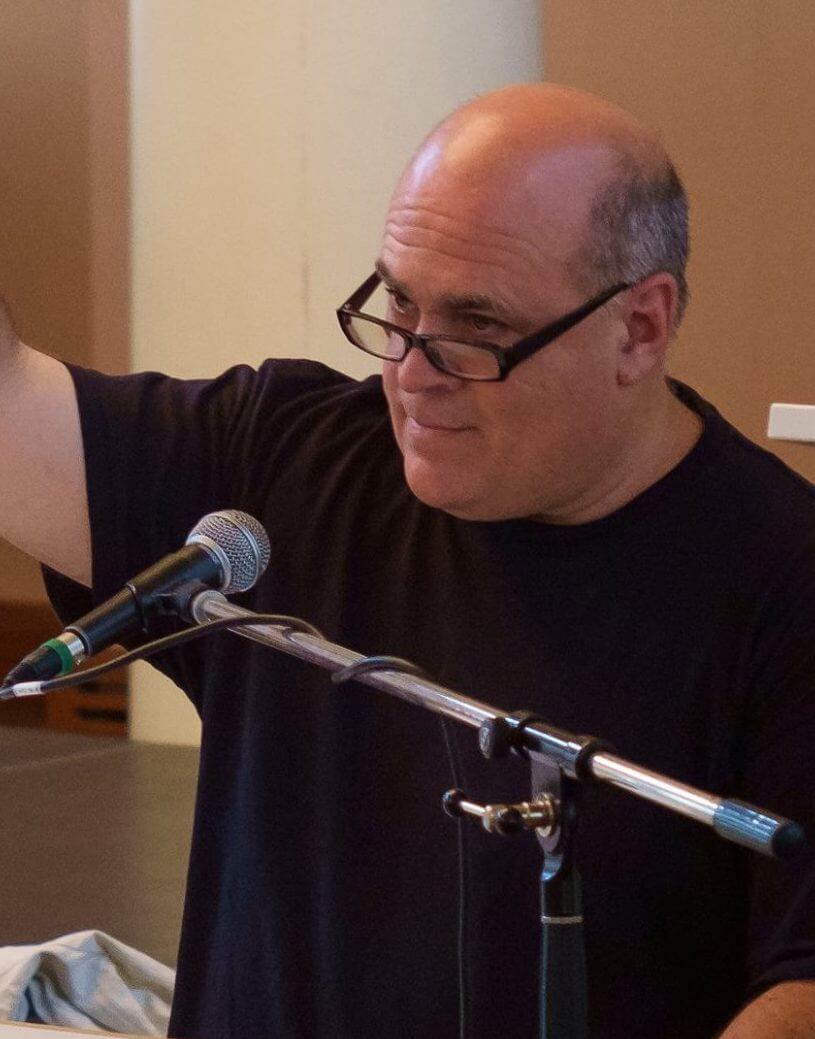
The Promiscuous World of Jewish Music
Joshua Horowitz curates a weekly series of free Zoom lectures on an array of fascinating aspects of Jewish music in the world today and yesterday. These lectures were created for Josh’s class at Sonoma State University for the past five years and deal with a different topic each session, and have grown to include an array of world renowned guest experts in the field of Jewish music, always followed by a rousing Q & A. The fun and informative lectures use videos, historical photos and recordings, and occasional live music combined with a Powerpoint Screen Share and run from 1-2 hours. The lectures cover Klezmer and Sephardic music, the Hasidic world, Cantorial and Classical music, etc. Donations are accepted and appreciated, but not required. The lectures and workshops are planned for Mondays between 11am-1pm Pacific time in order to accommodate both Bay Area as well as European and Middle Eastern Time Zones.
This project has been made possible in part by a grant from the Alliance for California Traditional Arts, in partnership with the Walter & Elise Haas Fund, the William and Flora Hewlett Foundation, Grants for the Arts, and The California Endowment.
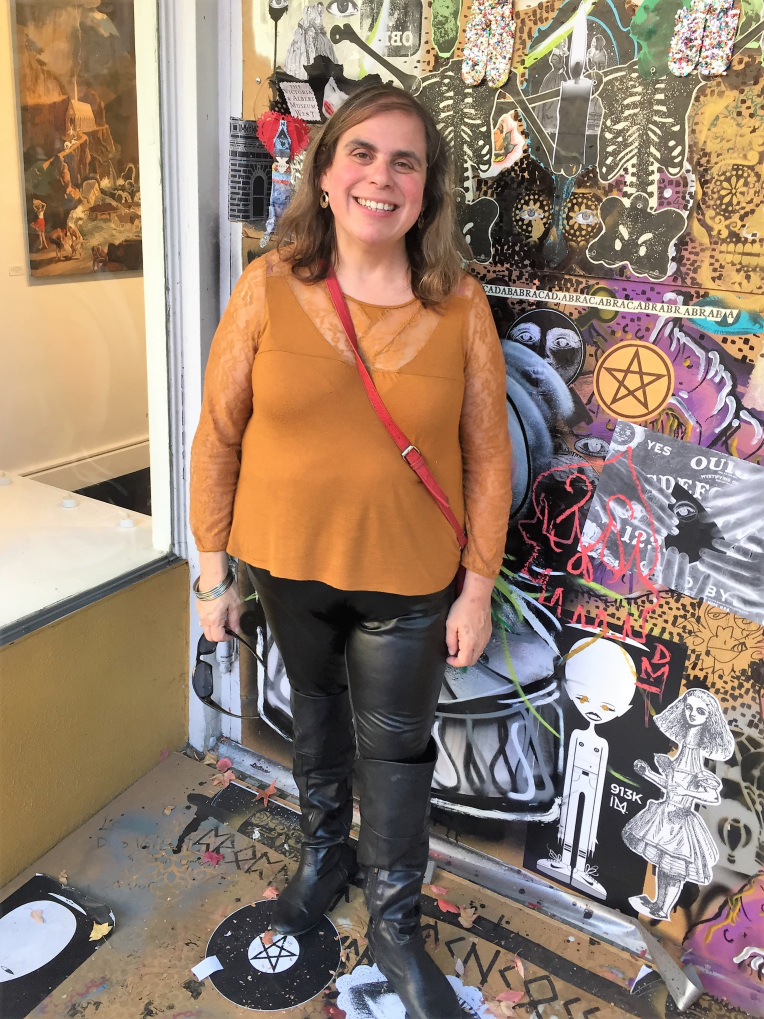
Alison Landa, Bearded Lady
This project supports transitioning an existing memoir manuscript to Young Adult form, in which the main character, Meredith who, like the author, is Jewish. Bearded Lady is an account of living with Congenital Adrenal Hyperplasia, a condition that, among other things, causes excess hair growth in female sufferers. The Young Adult version of Bearded Lady will trace Meredith’s journey through her junior and senior years of high school, as she struggles with her excessive and obvious facial hair as well as academic, friendship and romantic issues. Ultimately, she learns that acceptance – both without and within – is not only possible, but highly achievable. This arc is also informed by the Jewish history of perseverance despite many, many obstacles.
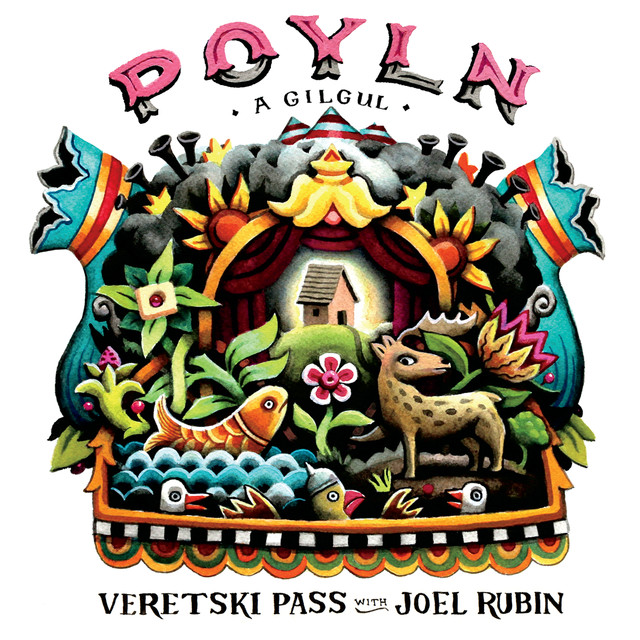
Veretski Pass, Polyn
Inspired by the 1901 story, A Gilgul Fun a Nign (Metamorphosis of a Melody), written by Polish Jewish author I.L. Peretz, klezmer musicians of Veretski Pass and Joel Rubin have re-imagined, re-composed, and re-arranged old urban and rural music, drawing from previously unknown Hassidik tunes, country dances, contemporary and 19th century ethnographic collections, as well as from field research of the musicians and their colleagues. The 2015 recording "Polyn" is the meeting of Jewish and Polish music — a missing link of the klezmer revival. The Polyn project was supported by the Alliance for California Traditional Arts and the Seymour Fromer Fund of The Jewish Community Foundation of the East Bay.
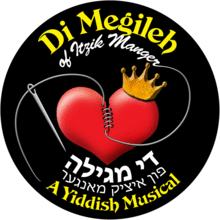
New Yiddish Theater, Di Megileh
Di Megileh is a satirical Purimshpil sung entirely in Yiddish, and adapted from “Songs of the Megileh” by poet Itzik Manger. The musical tells the Purim story through the eyes of a journeyman tailor, and his ill-fated love for Queen Esther. Building on the success of four sold-out performances of Di Megileh of Itzik Manger at the Jewish Music Festival in 2014, the New Yiddish Theater produced a fully-staged second season of this Yiddish music theater show in association with the Jewish Music Festival of the Jewish Community Center of the East Bay in Berkeley in February-March 2015.
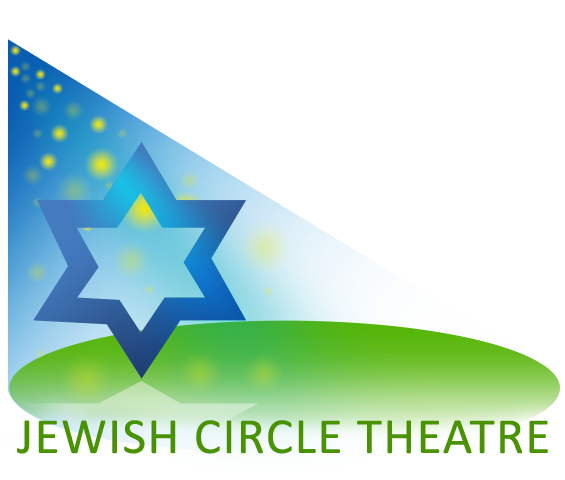
Jewish Circle Theatre
Jewish Circle Theatre (JCT) is an emerging traveling theatre company which produces diverse theatre works rooted in Jewish heritage and Israeli culture. JCT performs in English and in Hebrew (with English captions), reaching out to multi-lingual audiences, spanning across generations. Aspiring to produce contemporary theater, rooted in Jewish heritage, the JCT is constantly looking for innovative ways to connect with our audience through its cultural heritage, presenting the old and familiar in a new look. Our original plays are based on exploration of Jewish/Israeli themes through improvisations and theater exercises that follow the writing process. The broader JCT team entails our acting ensemble, musicians and dancers, designers, scholars of Jewish heritage as well as a group of devoted volunteers who, help in producing and marketing the shows, reaching out to our community, and building growing supportive audiences all around the SF Bay Area. The thirst for an original Jewish-Israeli culture, as manifested by their audience, underscores the growing need for a Jewish-Israeli theater in the Greater San Francisco Bay Area. JCT graduated from fiscal sponsorship after the I.R.S. granted it charitable 501(c)(3) status. Website
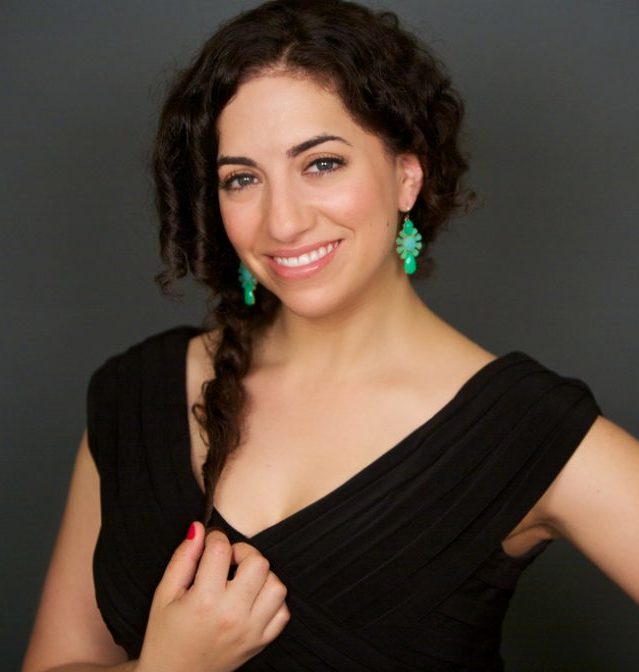
Heather Klein, Yiddish Spring: Living Composers in Yiddish
In Spring 2014, the Contemporary Jewish Museum in San Francisco hosted soprano Heather Klein and guests for a three-day concert series in celebration of Yiddish song. The performances coincided with Yom Hashoah 2014 (Holocaust Remembrance). On Thursday evening, April 24th, and Sunday afternoon, April 27th, there was a performance of Mame Loshn, an art song cycle in Yiddish by the composer Miriam Miller with text by her grandmother Sarah Traister Moskovitz from her book of poetry, Come to the Table. Along with Mame Loshn, the program also featured Yiddish songs written by other living composers, including David Botwinik (Toronto), Steven Greenman (Cleveland), and Be’eri Moalem (Israel). These songs are for different configurations of chamber ensembles. The concert featured soprano Heather Klein joined in performance by members of Heather Klein’s Bay Area ensemble, The Inextinguishable Trio, and by the internationally-recognized trio Veretski Pass. On Sunday, the concert was followed by a question-and-answer panel. The audience had the opportunity to engage directly with the performers, the composers, and the poet, and to share their own stories of how Yiddish culture has impacted their lives. Renowned expert on Jewish music, Francesco Spagnolo, Curator of the Magnes Collection of Jewish Art and Life, facilitated the discussion. Both concerts were videotaped and recorded. The project is now completed. Heather Klein's Website

Yiddish Theater Collective, Di Megileh
In 2014, the Yiddish Theater Collective produced a staged concert version of Di Megileh of Itzik Manger, a musical comedy sung entirely in Yiddish and adapted from Songs of the Megileh by poet Itzik Manger. The musical, set in the Lower East Side of New York circa 1911, tells the Purim story through the eyes of a sweatshop tailor, and his ill-fated love for the actress playing Esther in a local Yiddish Theater production of the Purimshpil. It has nearly a dozen major roles for singer/actors, a full chorus whose members also perform minor character roles and a small pit orchestra. Achi Ben Shalom is the music director, and Bruce Bierman is the stage director and choreographer. Performances of Di Megileh ran the extended weekend of March 9th, 2014 and was a special featured presentation of the 2014 Jewish Music Festival at the JCC East Bay in Berkeley. Though Di Megileh has been performed in Israel since the 1960's, and has had two New York City runs, this production marked its West Coast premiere. The Yiddish Theater Collective has now disbanded.
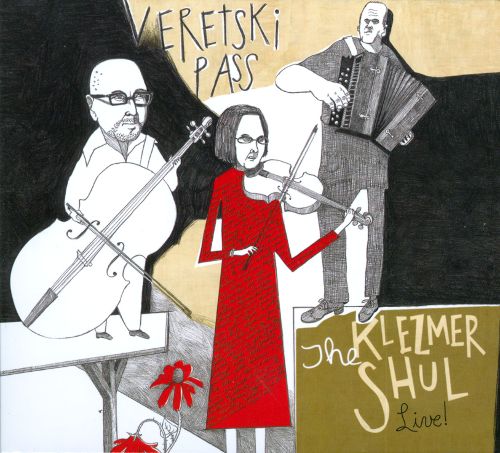
Stuart Brotman, Klezmer Shul
From 2005 to 2010, KlezCalifornia was fiscal sponsor for a project led by Stuart Brotman, in which Veretski Pass collaborated with Temple Israel of Alameda in the development and premiere of a new piece. The finished work is a four-movement tone poem called The Klezmer Shul that attempts to bridge the gap between the sacred and the secular, not through the use of words but with purely instrumental music. The Klezmer Shul evokes the emotions of synagogues in pre-war Eastern Europe, combining liturgy with jazz, avant-garde, classical, klezmer and folk elements, to inspire a feeling of prayer without words. The completed work runs approximately 50 minutes. While the original concept was that the piece could substitute for a liturgical service in some settings, with familiar liturgical elements or bows to liturgical elements, the completed work is much more a performance work and stands on its own. The project was funded by a $35,000 grant from the Creative Work Fund. Veretski Pass recorded and released the work on a CD, The Klezmer Shul Live, distributed by Golden Horn Records.
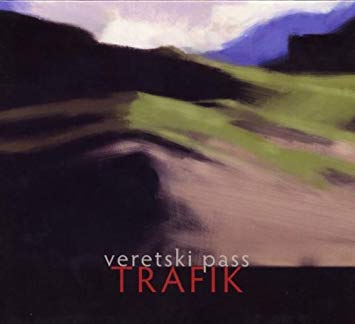
Veretski Pass, Trafik
In 2006, KlezCalifornia was fiscal sponsor for a project by Veretski Pass researching, composing, arranging, and recording works for the CD Trafik, distributed by Golden Horn Records. A true collage of Carpathian, Jewish, Rumanian and Ottoman styles, the suites contain dances from Moldavia and Bessarabia; Jewish melodies from Poland and Rumania, Hutzul wedding music from Carpathian-Ruthenia, and haunting Rembetic aires from Smyrna, seamlessly integrated with a large number of original compositions.

